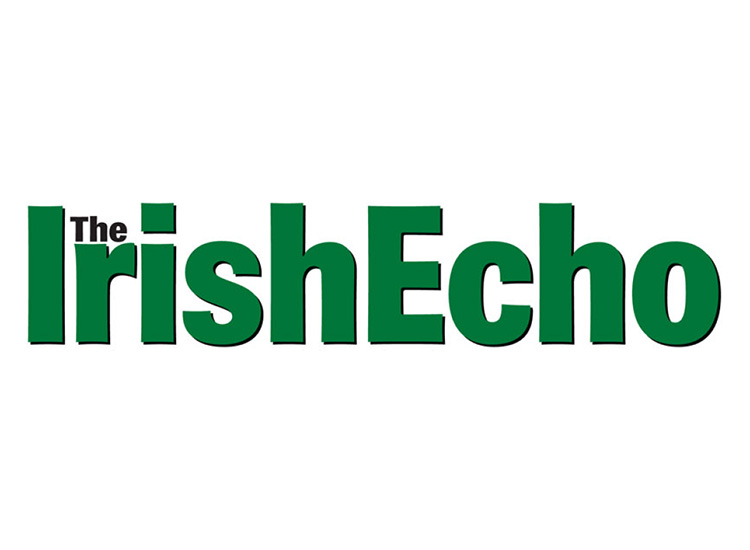President Kennedy laying a wreath at the Commodore John Barry memorial in Wexford during his Irish visit in June, 1963.
By Dr. James J. Kelleher
The President John F. Kennedy Assassination Records Collection Act of 1992 was signed into law by President George H. W. Bush in October 1992.
Among other provisions, the act mandated the release of all the documents related to the JFK assassination in twenty-five years, or more precisely October 2017.
From July through December 2017, the National Archives located in College Park, Maryland released 34,873 documents in six separate batches.
Before the document release began, President Trump made it clear that he intended to release all of the documents related to the assassination of President Kennedy.
Following the initial document release, President Trump gave federal agencies six additional months to review and release the remaining documents.
The CIA and FBI continued to assert national security grounds for blocking the release of several hundred, if not thousands, of documents.
The deadline set for the release of the remaining documents was April 26, 2018.
While an additional 19,000 documents were released, some 15,834 documents contained redactions, and another five hundred or more were withheld from the release.
The president bought into the national security argument and again extended the time for the removal of all the redactions and final document release to October 2021.
Fifty-five years after the murder of President Kennedy, the national security argument does not hold water.
Two official government investigations, conducted by the Warren Commission and the House Select Committee on Assassinations, agreed that the Soviet Union and Castro’s Cuba were not involved in the assassination.
If the initially suspect nations were not involved in Kennedy’s murder, what could possibly be the national security interest for still withholding documents and redacting thousands more? What is the government trying to hide?
Was there a connection between Lee Harvey Oswald and a federal agency such as the FBI or CIA?
Are government agencies concealing guilty knowledge of the assassination? Will the contents of the withheld documents reflect badly on the underlying principles of American democracy? To finally answer these questions, we need the documents now. The American people have waited long enough.
The document release to date has only further demonstrated the agency cover-ups that most researchers have pointed out for years.
We know from some of the released documents that FBI Director J. Edgar Hoover was in a rush to close the investigation.
If Lee Harvey Oswald was shown to have acted alone, what we today would call a lone-wolf attack, then the FBI would not have failed in its duty to prevent a conspiracy from murdering the president.
The conclusion that a single assassin killed the president was convenient.
Researchers are focused on a number of files and documents for detailed examination.
Those examining the Kennedy assassination have long wanted to look at the CIA file of George Joannides.
While in New Orleans in the summer of 1963, Lee Harvey Oswald apparently attempted to infiltrate anti-Castro organizations even though he appeared to be a supporter of Castro.
One group he tried to infiltrate, the DRE (Directorio Revolucionario Estudiantil), was an organization that was reporting to and funded by the CIA.
What makes Joannides interesting was that he may have been involved with the DRE, as part of his CIA duties, while Oswald was in contact with the group.
He was later brought out of retirement by the CIA to act as the liaison between the agency and the House Select Committee on Assassinations.
Years later, when G. Robert Blakey, the chief counsel for the HSCA, learned that Joannides was potentially overseeing the DRE, an organization that had contact with Oswald, and did not reveal that information to the HSCA, he was furious.
Blakey went on to say that he no longer trusted the CIA and that the agency withheld information from the HSCA, as it also did from the Warren Commission.
As a result, researchers continue to push for Joannides’s file in order to determine what really did take place in New Orleans in the summer of 1963.
How did those following the document release react?
Dr. Cyril Wecht, a longtime critic of the Warren Commission and a member of the HSCA forensic pathology panel, said that if the Warren Commission was right, then no harm would have resulted by releasing all the documents without redactions.
He asked why the final document release had to be further delayed, and why waiting another three years to view the documents would then make their release acceptable.
Professor Blakey argued that after so many years, redacting and withholding documents was ridiculous and unnecessary.
He said that if the CIA had been involved in the assassination no written record would have existed, and consequently, nothing of that nature would show up in a document release.
In interviews with CNN, political science Professor Larry Sabato and author Philip Shenon expressed the biggest fear of all for researchers and scholars: we may never get to see all of the documents.
The continued withholding and redaction of documents only fuels more speculation, controversy, and diminishes trust in our institutions of government.
If there was no conspiracy in the murder of President John F. Kennedy, there certainly is an ongoing conspiracy in terms of the document release.
Dr. James Kelleher is an associate professor of Political Science and the author of “He Was Expendable: National Security, Political and Bureaucratic Cover-Ups in the Murder of President John F. Kennedy.” He is a member of Citizens Against Political Assassinations.









